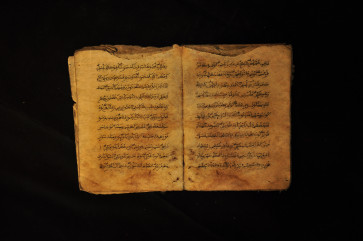Popular Reads
Top Results
Can't find what you're looking for?
View all search resultsPopular Reads
Top Results
Can't find what you're looking for?
View all search resultsPegon: a Javanese script of acculturation and resistance is fading
Change text size
Gift Premium Articles
to Anyone
An Arabic-Javanese writing system used by scholars during wartime is at risk of being forgotten.
Pegon is an Arabic-Javanese writing system that was used by Javanese Islamic scholars during Indonesia’s colonial resistance. Pegon manuscripts, which are mainly kept in pesantren (Islamic boarding schools), documented the development of Islam in Indonesia along with local religious cultures at that time.
Like many other scripts, Pegon is inclusive in its use. However, since Pegon was derived from the Arabic script, its identity is inevitably tied with Islam.
"Now people use the Latin script [more often], while Pegon is only used in [some Javanese] pesantren. So, the fewer people enroll in pesantren, the fewer people that can read and write Pegon," said Ahmad Rosidi, a 40-year-old preacher at Madrasah Diniyah Ar-Rochmani, in Wonogiri, Central Java, who has been teaching Pegon since 1999.
Miftahul Ma'rufin, a santri (student at an Islamic boarding school) from Pesantren Hudatul Muna Dua finds that the number of people interested in studying Pegon is dwindling. "This is because many [religious] books have been translated into Indonesian [and] many find it easier to study."
To prevent further fading of Pegon, Komunitas Pegon (Pegon Community), which formed in Banyuwangi, East Java, has been engaged in researching, documenting and publishing the historical treasures since Aug. 8, 2017. The community is also carefully studying and digitizing its collection of ancient manuscripts.
"We work with many organizations, including with Dreamsea [in 2019], Litbang Agama [Religious Research and Development] in Semarang [in 2020] and soon with the British Library’s EAP [Endangered Archives Program]," said Ayung Notonegoro, an activist from Komunitas Pegon.



















